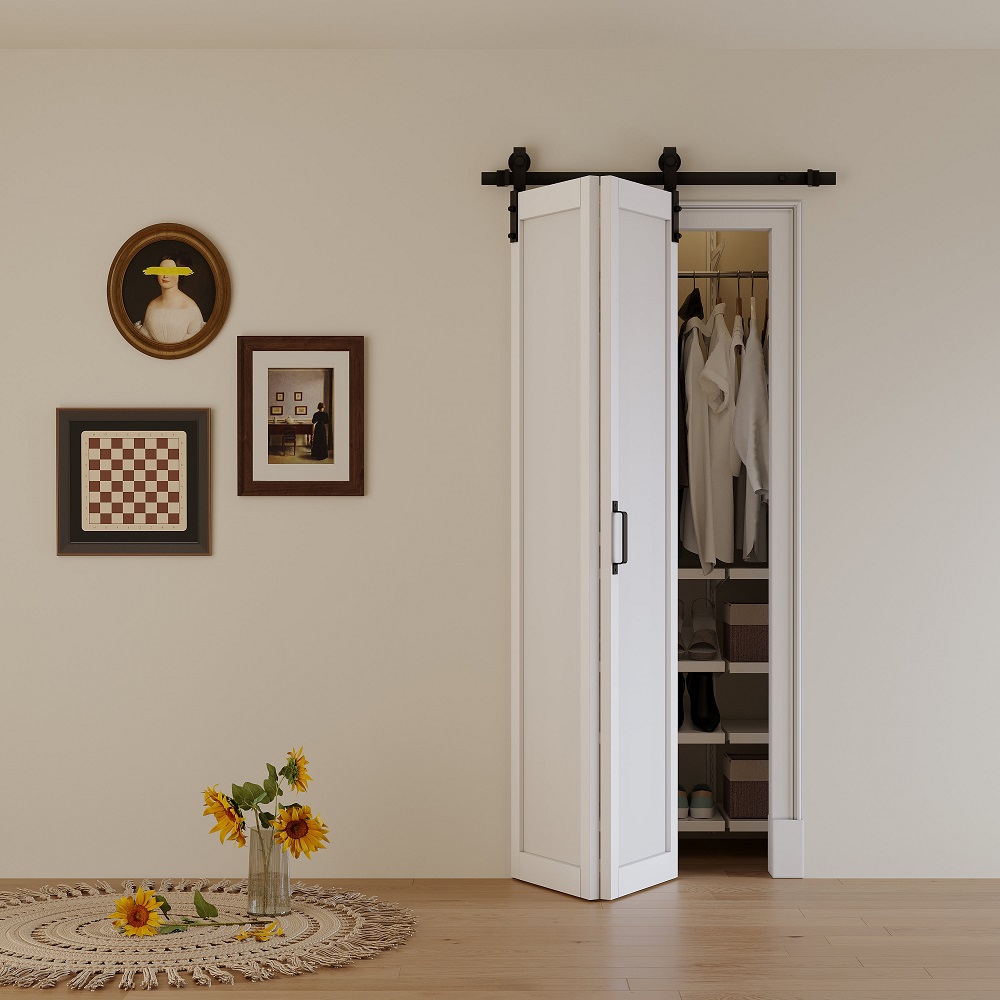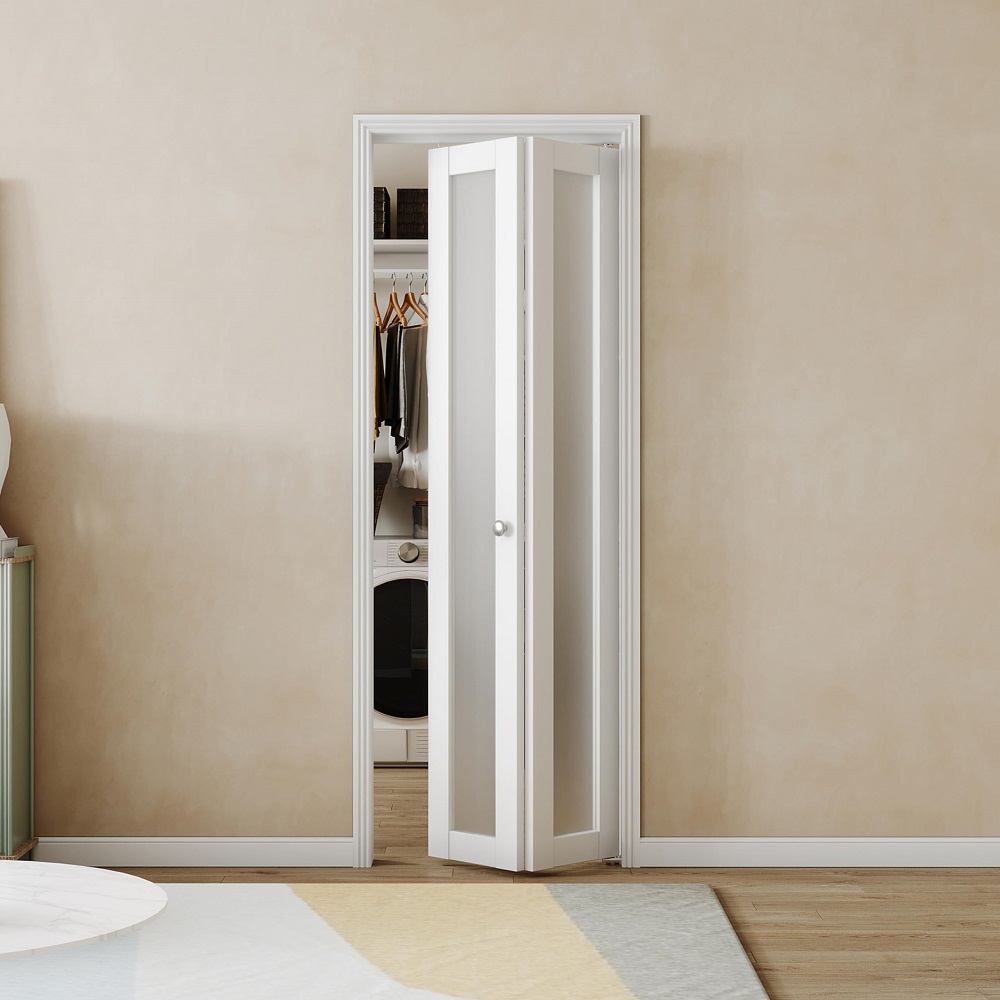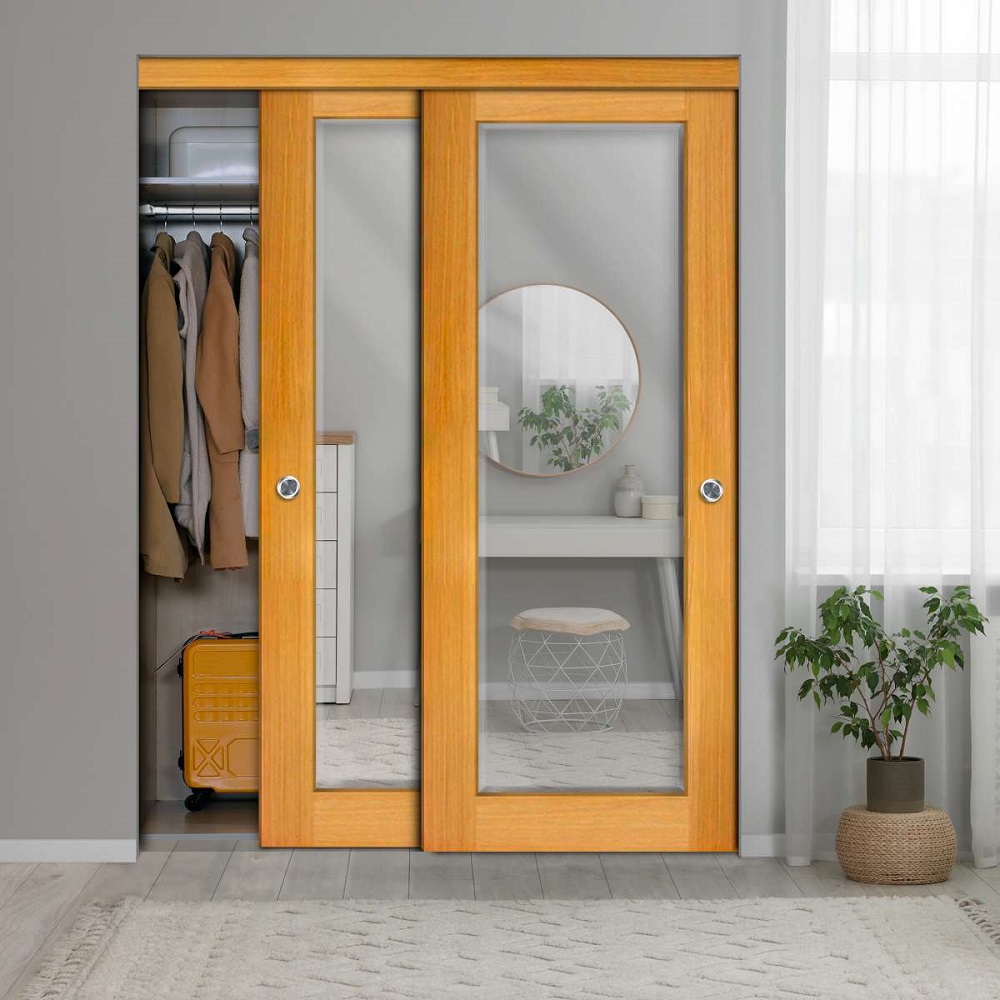Removing closet doors can seem like a daunting task, but with the right guidance, anyone can tackle this home improvement project with confidence. Whether you want to replace old doors, paint or refinish existing ones, or simply need to access the closet space more easily, understanding how to remove closet doors like a pro is key. This guide will take you step-by-step through the process, ensuring you have all the information you need for a successful project.
Understanding Different Types of Closet Doors
Bi-Fold Doors
Bi-fold doors are a popular choice for closets, particularly in smaller spaces where swinging doors would occupy too much room. These doors consist of two panels that fold inwards when opened. Removing bi-fold doors requires some special attention, as they are often mounted on tracks and can be a little more complex to disengage from their hinges.
Sliding Doors
Sliding doors are another common option, especially in contemporary designs. They operate on a track system and slide open horizontally, making them ideal for wide closets or spaces where swing clearance is an issue. to remove sliding doors, you need to understand how they are anchored to the track to safely lift them out without damaging the track or the door itself.
Hinged Doors
Traditional hinged closet doors are the simplest to remove. They rotate on hinges attached to the door frame, making them easy to unhook and take off. Knowing the type of door you’re dealing with is crucial as it affects how you’ll approach the removal process.

Gathering the Right Tools and Materials
Essential Tools
Before beginning the removal of your closet doors, you’ll need to gather a few essential tools. Typically, you’ll need a screwdriver (either a flathead or Phillips, depending on your screws), pliers, and possibly a bracket wrench for bi-fold doors. Additionally, a utility knife may be helpful if you need to cut any caulk or paint sealing the door edges to the frame.
Safety Gear
Don’t forget to equip yourself with safety gear as well. Safety goggles are recommended to protect your eyes from dust and debris, while gloves can help keep your hands safe from sharp edges or splinters. If you’re using power tools, ear protection is also a good idea.
Preparing the Closet and Surrounding Area
Clear the Closet Space
Before you start removing your closet doors, it’s essential to clear the area surrounding the closet. This means removing any items from inside the closet that may obstruct your work or be in danger of being damaged during the process. It’s also important to ensure there’s ample space outside the closet for the removed doors, especially if they are large or heavy.
Protecting the Floor and Walls
In addition to clearing the space, consider laying down a drop cloth or old blanket to protect the floor from scuffs and scratches. If you’re removing sliding or bi-fold doors, the risks of damaging wall corners or baseboards increase. Using painter’s tape can help safeguard these areas from accidental bumps or scratches.
Removing Bi-Fold Closet Doors: A Step-by-Step Guide
Step One: Assessing the Door Configuration
First, examine your bi-fold doors to determine how they’re connected. Most bi-fold doors have a pivot hinge on the top and a pin in the bottom. The top mechanism is often the trickiest part, so be sure you understand where everything is connected before attempting removal.
Step Two: Detaching the Top Pivot Hinge
Begin by carefully lifting the bi-fold door upwards to disengage the top pivot pin from its bracket. This may require a bit of wiggling or jiggling to ensure a smooth removal. With the top disengaged, gently pull the door towards you to release it from the bottom pivot pin.
Step Three: Removing the Bottom Pin
Once the door is free from the top, you can now focus on the bottom pivot pin. Pull up on the door so that you can easily access the pin, and gently pull it out. Repeat the process for the second bi-fold door, and you will have successfully removed the bi-fold doors from your closet.
Removing Sliding Closet Doors: A Detailed Approach
Step One: Inspect the Track System
Before starting the removal, inspect the sliding door track system. Most sliding doors slide on a track at the top and sometimes at the bottom. Identifying how these tracks work is essential for a successful removal. Check for any screws securing the doors to the track.
Step Two: Lifting the Doors Away from the Track
To remove the sliding doors, start by pulling them apart as much as possible. Lift one door straight up—most sliding doors can be lifted out of the top track by angling the bottom away from the threshold. This might require a bit of force, so ensure you have a firm grip.
Step Three: Disengaging the Lower Track
Once you have lifted the door from the top, gently pull it away from the lower track, taking care not to damage the track in the process. If there are multiple sliding doors, repeat the same process for the second door to fully remove both from the closet.

Removing Hinged Closet Doors: Simple Steps
Step One: Identifying the Hinges
Removing hinged doors is straightforward. First, identify the type of hinge used—most commonly, you will find either butt hinges or concealed hinges. Knowing this will guide your approach for removal.
Step Two: Unscrewing the Hinges
Using a appropriate screwdriver, begin unscrewing the hinges starting from the bottom hinge and working your way upwards. This will help reduce the weight on the top hinge as you remove each one. Be sure to support the door as you remove the last hinge to prevent it from falling.
Step Three: Finally, Removing the Door
Once all hinges are unscrewed, gently pull the door away from the frame. It’s a good idea to have a friend assist you if the door is heavy or large to prevent injury or damage.
Post-Removal: What to Do Next
Cleaning the Area
Now that the doors are removed, take the time to clean the area where the doors were attached. This includes sweeping or vacuuming the floor space as well as wiping down the door frame. If you’re planning to paint or refinish, a clean surface will yield better results.
Assessing and Preparing for Replacement
If your end goal is to replace your closet doors, measure the opening for the new doors. This ensures that you purchase the right size. Consider if you want to upgrade to a different style, such as sliding or bi-fold, and make a decision based on the closet’s functionality and aesthetics.
Tips for a Smooth Removal Process
Be Patient and Take Your Time
Every removal might present its own unique challenges, particularly with older homes where buildup like paint or caulking can create a complicated bond between the door and frame. Take your time during the process, and don’t rush through to prevent unnecessary damage.
Don’t Hesitate to Seek Help
If at any point you feel uncomfortable with the removal process, consider reaching out to a friend or hiring a professional. Sometimes, it’s better to have an extra set of hands, especially if you’re dealing with larger doors.

Conclusion: Enjoy Your Newly Opened Space
Removing closet doors can be an empowering and satisfying DIY project, transforming your space in an instant. Armed with the right tools and knowledge, you can tackle this task like a pro—whether you’re looking to replace your doors, paint the interior, or simply create more access to your storage area. Celebrate your accomplishment and enjoy the new functionality within your closet!
By following these easy steps to remove closet doors, you’ll not only save on labor costs but gain valuable skills for future home improvement tasks. Remember, preparation and safety come first. Happy renovating!
